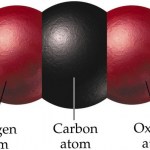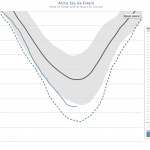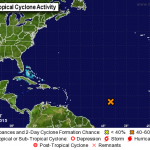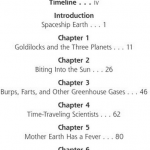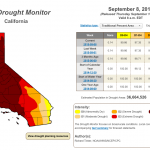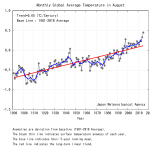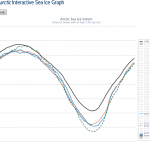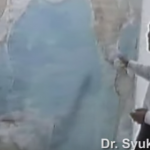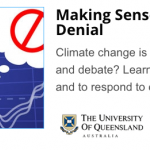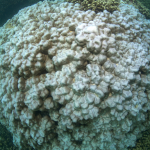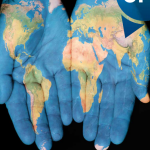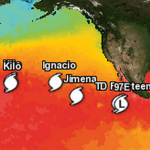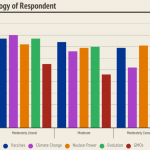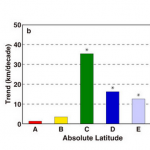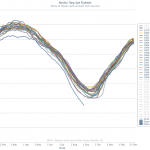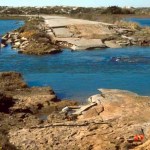Climate Change
Liquid fuel powering internal combustion engines is inherently inefficient. This is because innumerable explosions causing kinetic work to be done also makes piles of heat, and for other reasons. The same amount of energy put into an electric motor and an internal combustion motor produce more usable work for the former than the latter. Also, electric motors can operate at similar efficiencies across a range of speeds, while internal combustion motors require more messing around to change speeds. And then there is torque. Torque is apparently at the center of coolness for many vehicle…
The National Snow & Ice Data Center has declared that the Arctic Sea ice extent has reached its annual minimum and is now starting to expand. I was thinking that it was too early to say this, since in past years what looks like a minimum can sometimes be reversed by some additional melting. But they are the experts, so I suppose we should go with it for now.
If this is the case, then this is the fourth lowest minimum in the good data set covering the last several decades.
They do hedge a bit. Here is what they say:
On September 11, Arctic sea ice reached its likely minimum extent for…
A few items for you.
California drought: Sierra Nevada snowpack falls to 500-year low
The Sierra Nevada snowpack that is a critical water source for California fell to a 500-year low last winter – far worse than scientists had estimated and underlining the severity of the current drought, according to new research.
The snow accumulation in the mountains was just 5% of what is normal, inflating the risk of wildfires, drying up wells and orchards, and pushing communities into water rationing.
Climate Central has a couple of interesting US maps showing trends in change over time in Fall…
Great interview with Michael Mann related to Turnbull's election. Concerning fat tails.
Start it at 29:20:
Climate Change: Discover How It Impacts Spaceship Earth (Build It Yourself) covers many concepts in earth science, from paleontology to climate systems to how to make a battery out of apple (how can a kid's science activity not include the apple battery!). This book represents an interesting concept, because it involves kids in mostly easy to do at home projects, covers numerous scientific concepts, and takes the importance of global climate change as a given. There is a good amount of history of research, though the book does not cover a lot of the most current scientists and their key work…
California voters feel increasingly squeezed by their drought, according to a new USC Donrslife/Los Angeles Times poll.
September 11, 2015 — As one of California’s most severe droughts on record continues to worsen, more than one in three state voters say the drought has had a major impact on them and the lives of their families, according to results from the latest USC Dornsife College of Letters, Arts and Sciences/Los Angeles Times Poll.
Thirty-five percent of California voters said the drought has had a major impact, 50 percent said it has had a minor impact, and 14 percent said it has…
According to the Japan Meteorological Agency, "The monthly anomaly of the global average surface temperature in August 2015 (i.e. the average of the near-surface air temperature over land and the SST) was +0.45°C above the 1981-2010 average (+0.79°C above the 20th century average), and was the warmest since 1891. On a longer time scale, global average surface temperatures have risen at a rate of about 0.65°C per century."
See graphic above.
September is when the melt of the Arctic Sea Ice stops, and the re-freeze starts. We are probably not at the minimum yet, but the amount of melting is starting to level off so we can see where we are. The above graphic, made here (go and play with the interactive graph) shows the first ten years of ice freezing and remelting in the data set to use as a baseline for comparison, and the present year. Yes, there is much less sea ice on the northern end of the planet than usual.
This version of the graph shows the years with less ice, so far, than the present year. This includes the famous 2012…
Check this out:
Hat tip, Peter.
The recently produced Massive Open Online Course on climate science denial is chock full of great videos that should be at everyone's fingertips. HERE is a list of the videos. Use it well and powerfully.
Marine biologists from the University of Queensland is looking at coral reefs in Hawaii and what they see is not good.
They used high resolution images to track coral bleaching and death. Recently coral reefs in Hawaii suffered their first known mass bleaching event, caused by unusually warm waters associated with the now famous "Blob" of warm sea water in the Pacific.
An overall warming trend (anthropogenic global warming) along with the additional effects of a growing El Niño seem to be causing this.
This phenomenon is happening now. Ove Hoegh-Guldberg, chief scientist at Global Change…
The Citi Global Perspectives and Solutions thingie, part of Citibank, has done a study that you can read here. It says that addressing global warming makes economic sense. So, when those science deniers are out there denying climate change they are also denying arithmetic. Shame on them.
Dana Nuccitelli, author of Climatology versus Pseudoscience and Guardian Blogger, wrote up the report at Skeptical Science:
Citi Global Perspectives & Solutions (GPS), a division within Citibank (America’s third-largest bank), recently published a report looking at the economic costs and benefits of a…
Not the book (which is good) but the thing. The storms, really.
I may have mentioned the pilot whales I saw in San Diego the other day. You've heard about changes in shark distributions, and odd fish being caught in unusual places, etc. This is all about changes in the Pacific as increased global warming affects ocean ecology. Inside Climate News has this:
A
Warmer North Pacific Is Staying Warmer, With Dramatic Impact on Marine Life
Ocean temperature fluctuations have slowed, a new study says, with an extended warm period in the N. Pacific causing a massive shift in marine life.
One study…
Two items of interest.
1) A new poll looks at conservative and liberal views of science. The findings are not especially unexpected, but the details are interesting. The image above is from this infographic, and the details are given here.
Yes, the detail are quite interesting.
2) If you care, there is some information on what the 2016 GOP candidates stand on climate change.
This is put together by CBS and is here.
Human caused climate change is changing the size and location of major climate zones, according to a new study.
Climate is complex, and a classic, widely used effort to wrangle that complexity into a sensible form is the Köppen classification system (and variants). We need not speak of the details here, but within this scheme there are five climate groups that include all of the possibilities for the Earth’s land surface. They are:
A: Tropical/megathermal climates
B: Dry (arid and semiarid) climates
C: Temperate/mesothermal climates
D: Continental/microthermal climates
E: Polar and alpine…
John Abraham is a scientist at St Thomas University in the Twin Cities. John is famous for doing battle with a famous science denialist (that's what the meme above refers to), for his blog at the Guardian, for his research in several areas such as ocean heat, and for keeping track of month by month increases in global surface heat caused by anthropogenic global warming.
Sunday, I had the honor of interviewing John Abraham about current developments in climate change. It was Sunday morning so you were probably either sleeping or in church, but don't worry, there's a podcast!
You can listen…
I don't care that the director or CEO of an advocacy organization concerned with poverty is an active academic. Indeed, my view of active academics is that many are largely incompetent in areas of life other than their specialized field. If that. So really, if you told me there is this great advocacy organization out there run by a well established active academic I'd figure you had that wrong, or I'd worry a little about the organization. On the other hand, everyone should care that university positions be given to active academics with credentials. So, when the University of Western…
Just a few pointers to some of today's interesting climate stories.
First, this is the tenth anniversary of Hurricane Katrina. After ten years, the costs of that hurricane are still being paid. See this overview. Also, astonishingly, or perhaps totally expectedly, one third of Louisiana blame a Democratic Senator from the Midwest for the lousy response to Katrina by the Republican executive branch.
Meanwhile, wildfires out west are really bad. A friend of mine drove way into the rocky mountains over the last few days and noted that for a long time he couldn't even see any mountains the…
A new paper examines what is behind the ~2% of climate change related peer reviewed research that run contrary to widely accepted scientific consensus on climate change to see why those papers are wrong.
There is a scientific consensus that increasing greenhouse gas concentration in the atmosphere causes surface warming, and that CO2 is a major greenhouse gas. This consensus is based on physics. We don't need to observe the effects of human greenhouse gas pollution to know this. There is consensus that human burning of fossil fuel causes an increase in CO2 in the atmosphere. We don't need…
What's worse than months or years without rain? Rain, after months or years, at least under some circumstances.
For instance ... it gets try, plants become vulnerable to fire. Fires happen denuding the dry landscape. Then it rains, and you get more severe floods together with landslides. You know the story because for years this has been the pattern in California.
But there is another roughly similar, or at least analogous, problem that is now being discussed. The levees that are mean to keep floodwaters contained in California were already in fairly bad shape. Prior to the drought, a…
